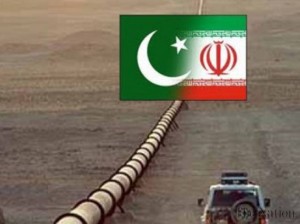 Islamabad, March 5, IRNA - Pakistan and Iran have signed the gas pipeline deal in line with a bilateral treaty, which reflects a sovereign act, a report quoted renowned expert in international law Ahmer Bilal Soofi on Wednesday.
Islamabad, March 5, IRNA - Pakistan and Iran have signed the gas pipeline deal in line with a bilateral treaty, which reflects a sovereign act, a report quoted renowned expert in international law Ahmer Bilal Soofi on Wednesday.�There is no need to re-enter into another bilateral treaty or �convert� the existing gas purchase agreement into a treaty to avoid sanctions,� Soofi said in reply to queries from daily Express Tribune.
He said Iran-Pakistan 2009 declaration was a bilateral treaty and represented a sovereign act.
The gas purchase agreement was executed between commercial entities of the two countries namely Inter State Gas Systems (ISGS) and National Iranian Oil Company on June 5, 2009. On May 24, 2009, the two states entered into a bilateral treaty titled Intergovernmental Framework Declaration, which clearly predates the gas purchase agreement.
He referred to Article 2(1)(a) of the Vienna Convention on the Law of Treaties 1969, which states that treaty means �an international agreement concluded between states in written form and governed by international law, whether embodied in a single instrument or in two or more related instruments and whatever its particular designation.�
Soofi was of the view that the Iran-Pakistan gas pipeline was not covered under the UN sanctions that had been imposed under UNSC Resolution 1929. �No country has brought any objection to the UN that the gas pipeline is violating UN sanctions.�
The gas purchase agreement has a penalty clause under which Pakistan needs to pay $2 million per day if it fails to complete the project on time. Iran already has a bilateral investment treaty that too can be invoked against Pakistan, which is already facing several crucial and costly arbitrations.
Responding to a question, Soofi stated that Iran could in principle sue Pakistan in the international court of arbitration and that would inflict an additional cost of billions of dollars.
He also said the European Court of Human Rights had already shown discomfort with the UN sanctions framework as being devoid of several due process standards, although Article 50 of the UN Charter provided a mechanism for appeal to the states affected by the sanctions.
By IRNA
The Iran Project is not responsible for the content of quoted articles.










